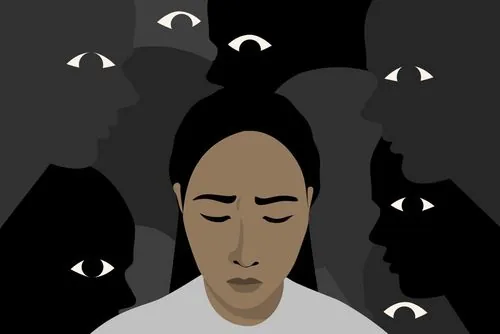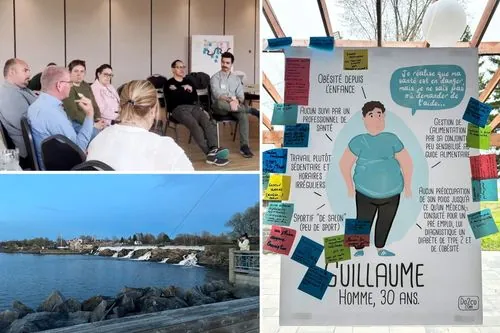
Unlocking Mental Health Access: A Lifeline for Vulnerable Communities
2025-09-05
Author: William
The Urgency of Early Intervention
When it comes to tackling first-episode psychosis, timing is crucial. According to Dr. Amal Abdel-Baki, a clinical professor at Université de Montréal, intervening early can be a game changer. "Most mental disorders first arise before age 25, and the sooner we step in, the greater the chances of a positive outcome," she emphasizes.
Why Immigrants Face Greater Risks
Early intervention not only aids individuals in managing their symptoms but also helps them thrive within society. However, certain groups, notably immigrants, face heightened risks due to their challenging, often traumatic backgrounds.
Research conducted by Ines Boujelben, an UdeM psychiatry resident, delves deep into the complexities surrounding access to mental healthcare for racialized and immigrant populations. "Addressing their unique needs is vital; if they receive treatment, they benefit just as much as anyone else," she asserts.
Disengagement: A Serious Concern
Boujelben’s investigation reveals a troubling trend: racialized and immigrant youth often struggle to engage with treatment, and when they do start, many drop out. "We risk losing touch with them, which undermines the very benefits of treatment," she warns.
Insights from Groundbreaking Research
Through a five-year, comprehensive study encompassing 567 young adults admitted for first-episode psychosis across two Montreal facilities, Boujelben found that first-generation immigrants are often admitted via distressing routes, such as law enforcement. This can lead to a higher likelihood of disengagement compared to those referred by family or healthcare professionals.
Interestingly, many first-generation immigrants leave Montreal for various reasons, giving the impression of abandoning treatment. However, those who remain generally continue their healthcare journey.
Next Steps in Research
The research team plans to complement their quantitative findings with qualitative studies, aiming to grasp the underlying reasons behind these patterns. "Understanding these dynamics will inform how we can improve care and support for vulnerable populations," Boujelben explains.
The Power of Effective Outreach: EQIIP SOL
One promising initiative is the EQIIP SOL team at CHUM, which provides intensive support for young individuals grappling with psychosis and substance use. Originally a pilot program launched in 2012, its success has led to its permanent establishment.
With frequent follow-ups, the program caters to a myriad of vulnerabilities, and its impact is significant: young people exit homelessness much faster through the EQIIP SOL model.
Turning Lives Around: The Data Speaks
Research spanning from 2012 to 2020 tracked the progress of 177 participants in the EQIIP SOL program, revealing that around 80% successfully transitioned out of homelessness. This outcome underscores the importance of tailored support.
The Societal Benefits of Intervention
Dr. Abdel-Baki highlights the broader societal advantages of early intervention. It not only reduces reliance on emergency services, which is a huge financial strain, but also significantly lowers the risk of tragic outcomes associated with untreated psychosis.
Final Thoughts: A Call for Equity in Care
Dr. Abdel-Baki and Boujelben both underscore a crucial call to action: addressing mental health care inequalities is paramount. "Equity in access to care is not merely ideal; it’s essential for the well-being of individuals and society as a whole," they assert.









 Brasil (PT)
Brasil (PT)
 Canada (EN)
Canada (EN)
 Chile (ES)
Chile (ES)
 Česko (CS)
Česko (CS)
 대한민국 (KO)
대한민국 (KO)
 España (ES)
España (ES)
 France (FR)
France (FR)
 Hong Kong (EN)
Hong Kong (EN)
 Italia (IT)
Italia (IT)
 日本 (JA)
日本 (JA)
 Magyarország (HU)
Magyarország (HU)
 Norge (NO)
Norge (NO)
 Polska (PL)
Polska (PL)
 Schweiz (DE)
Schweiz (DE)
 Singapore (EN)
Singapore (EN)
 Sverige (SV)
Sverige (SV)
 Suomi (FI)
Suomi (FI)
 Türkiye (TR)
Türkiye (TR)
 الإمارات العربية المتحدة (AR)
الإمارات العربية المتحدة (AR)